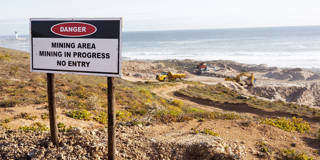The metals and critical minerals that are needed for the transition to a net-zero economy are largely concentrated in only a handful of countries, raising the likelihood that those suppliers could form a new global cartel. Such a development would have major adverse implications for global markets.
MUNICH – We know that the future will be powered by metals, but it remains to be seen if those metals will be fenced in by iron curtains. After all, most critical minerals come from only a handful of countries: China controls nearly all heavy rare-earth materials (including 91% of magnesium and 76% of silicon metal), the Democratic Republic of Congo (DRC) accounts for over 60% of the global cobalt market, and South Africa controls 71% of the world’s platinum supply.

MUNICH – We know that the future will be powered by metals, but it remains to be seen if those metals will be fenced in by iron curtains. After all, most critical minerals come from only a handful of countries: China controls nearly all heavy rare-earth materials (including 91% of magnesium and 76% of silicon metal), the Democratic Republic of Congo (DRC) accounts for over 60% of the global cobalt market, and South Africa controls 71% of the world’s platinum supply.